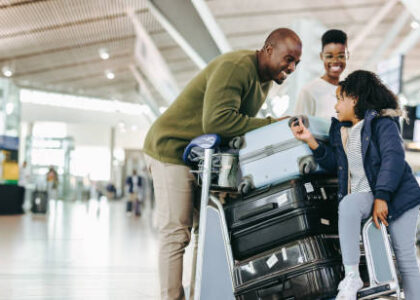Traveling is a transformative experience that has the power to open our minds, broaden our horizons, and ignite our sense of wonder. Whether we’re exploring the bustling streets of a foreign city or hiking through remote landscapes, travel allows us to break free from our routines and embrace the unknown.
One of the most remarkable aspects of travel is its ability to connect us with people from different cultures and backgrounds. By immersing ourselves in unfamiliar environments, we gain a deeper understanding of the world and develop empathy for others. Through shared experiences and interactions, we realize that despite our differences, we are all part of a global community.
Travel also challenges us to step out of our comfort zones and push our boundaries. It encourages us to try new foods, learn new languages, and engage in activities we never thought possible. As we navigate through unfamiliar territories, we discover hidden strengths within ourselves and cultivate a sense of resilience that stays with us long after the journey ends.
Moreover, travel has the power to inspire creativity and spark innovation. Experiencing new sights, sounds, and sensations can stimulate our senses and fuel our imagination. Whether it’s capturing breathtaking landscapes through photography or capturing poignant moments in writing, travel provides endless inspiration for artistic expression.
Ultimately, travel is not just about visiting new places; it’s about embarking on a journey of self-discovery and personal growth. It teaches us to appreciate the beauty of diversity, embrace uncertainty with courage, and cherish the fleeting moments that make life truly extraordinary. So pack your bags, set out on an adventure, and let travel transform you in ways you never thought possible.
Travel FAQs: Spelling, Safety, and More
- Is travelling spelled with one L or two?
- Is the smart traveler enrollment program legitimate?
- Is travel a hobby?
- What are the risks of traveling on advance parole?
- How do I notify the State Department of travel?
- What does travel along mean?
Is travelling spelled with one L or two?
The correct spelling of the word is “traveling” with only one “L” in American English. While in British English, the word is spelled as “travelling” with two “Ls”. It’s important to pay attention to these minor spelling variations based on the regional differences in English language usage.
Is the smart traveler enrollment program legitimate?
The Smart Traveler Enrollment Program (STEP) is indeed a legitimate program offered by the U.S. Department of State to assist U.S. citizens and nationals traveling or living abroad. By enrolling in STEP, travelers can receive important information from the nearest U.S. embassy or consulate about safety conditions in their destination country, helping them make informed decisions during their travels. Additionally, STEP allows the U.S. government to better assist individuals in case of emergencies such as natural disasters or civil unrest. It is highly recommended for travelers to enroll in STEP before embarking on international journeys to ensure their safety and well-being while abroad.
Is travel a hobby?
The question of whether travel is considered a hobby is a common one among enthusiasts and curious minds alike. For many, travel transcends the traditional definition of a hobby and becomes a way of life—a passion that fuels exploration, discovery, and personal growth. While some may view travel as a recreational activity pursued in leisure time, others see it as an integral part of their identity, shaping their perspectives, values, and priorities. Whether one travels for relaxation, adventure, cultural immersion, or self-discovery, the act of exploring new destinations and experiencing different cultures often goes beyond mere pastime and evolves into a deeply meaningful pursuit that enriches the soul.
What are the risks of traveling on advance parole?
When considering the risks of traveling on advance parole, it is important to weigh the potential implications carefully. Traveling on advance parole may carry certain uncertainties, such as the possibility of encountering delays or complications in re-entering the country. It is crucial to adhere to all regulations and guidelines set forth by immigration authorities to mitigate any risks associated with travel on advance parole. Seeking guidance from legal experts and staying informed about current immigration policies can help travelers navigate these potential challenges effectively.
How do I notify the State Department of travel?
To notify the State Department of your travel plans, you can utilize the Smart Traveler Enrollment Program (STEP) online. This free service allows U.S. citizens and nationals traveling abroad to register their trip with the nearest U.S. Embassy or Consulate. By enrolling in STEP, you can receive important information from the Embassy about safety conditions in your destination country, help the U.S. Embassy contact you in case of an emergency, and stay connected with updates on travel advisories or alerts that may impact your trip. It’s a valuable tool to ensure that the State Department is aware of your whereabouts and can provide assistance if needed during your travels.
What does travel along mean?
Traveling along refers to journeying alongside something or someone, often in the same direction or path. It could involve following a specific route, accompanying a companion on a trip, or moving parallel to a particular landmark or feature. Traveling along can also imply exploring an area while maintaining a continuous movement in proximity to a certain point of reference. This concept of traveling along encapsulates the idea of moving in sync with something else, whether it be a person, object, or geographical feature, creating a sense of shared experience and connection throughout the journey.





